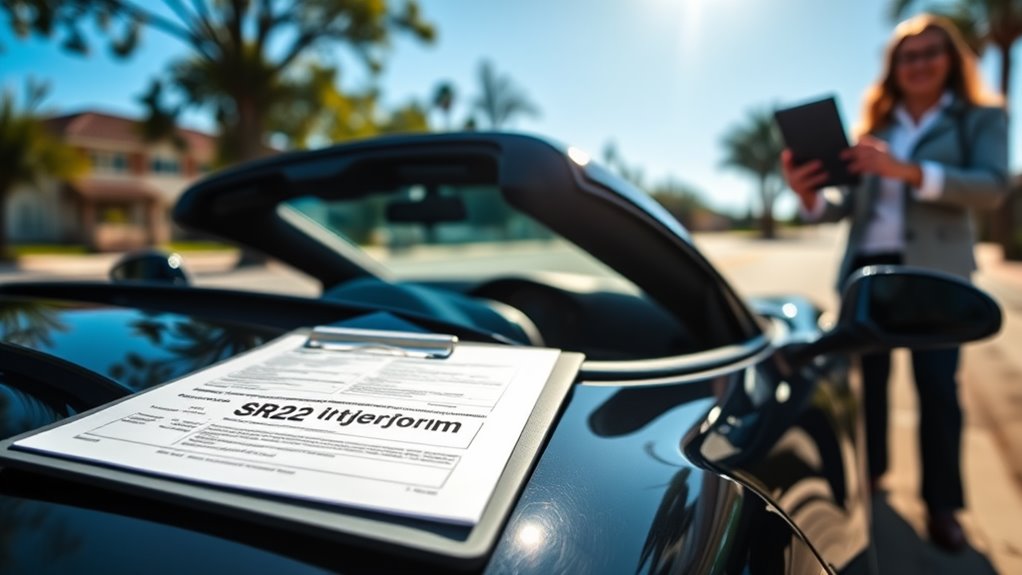Driving History’s Effect on SR22 Insurance Rates
Your driving history greatly impacts your SR22 insurance rates, often in ways you might not expect. Serious infractions, such as DUIs or multiple traffic violations, can classify you as a high-risk driver, leading to steep premium increases. These hikes can vary dramatically by state, potentially costing you hundreds or even thousands more annually. Understanding how your driving behavior influences these rates is essential for managing your insurance costs effectively. What factors should you consider next?
Have you ever wondered how your driving history impacts your SR22 insurance rates? Understanding this connection can help you navigate the complexities of insurance costs, especially if you've been required to file an SR22 due to serious driving offenses. Your driving record is vital in determining your risk status with insurance companies, which ultimately affects how much you'll pay for SR22 insurance.
When an insurance company evaluates your application for SR22 insurance, they view you as a high-risk driver if you've had serious infractions like DUIs or multiple traffic violations. These offenses not only result in immediate penalties but also lead to significant increases in your insurance premiums. Depending on the severity of your infractions, you could see your rates jump substantially, sometimes ranging from $300 to $1,500 annually, depending on the state you reside in. Maintaining a clean driving record can lead to lower rates over time, as insurers assess overall driving behavior to gauge risk.
Consequently, maintaining a clean driving record becomes an essential part of managing your insurance costs.
Another factor that influences your SR22 insurance rates is the type and age of your vehicle. Newer vehicles often come with higher premiums due to their increased value and repair costs. If you're driving a high-performance car or a luxury vehicle, expect to pay even more.
Insurance companies consider these aspects when calculating your rates, which means the choice of vehicle can have long-term implications for your financial responsibilities.
The SR22 itself serves as a certificate of financial responsibility, proving you have the minimum required insurance. However, having this policy doesn't directly reflect on your driving record; it's the underlying infractions that matter. The requirement to maintain SR22 coverage typically lasts from three to five years, and during this period, your driving record will be closely monitored.
Any further violations can lead to additional penalties, compounding the financial burden of your insurance.
State regulations also play a significant role in your insurance premiums. Each state has its own rules regarding SR22 filings, and the specifics can vary widely. In some states, the requirements might be less stringent, allowing for lower premiums, while others may impose higher costs due to stricter regulations.
As a result, it's important to understand your state's requirements to make informed decisions about your insurance.
Maintaining continuous coverage is imperative for SR22 compliance. Failing to do so can result in license suspension and further complications in your insurance status. Additionally, a poor credit score can further exacerbate your SR22 insurance rates.
Insurers often consider credit scores when determining premiums, adding another layer of complexity to your financial situation.
Conclusion
In summary, your driving history considerably impacts your SR22 insurance rates. If you've had serious infractions, you're likely to face higher premiums, sometimes by hundreds or even thousands of dollars. It's essential to stay on the straight and narrow; maintaining a clean record can help lower your rates over time. Remember, driving responsibly not only keeps you safe but also saves you money in the long run. Don't let past mistakes haunt your wallet.


